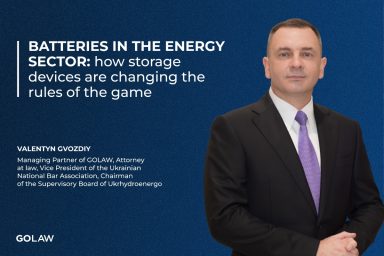Bankruptcy during the war: practical aspects of the procedure
Contents
In today’s realities, there often arise situations where debtors cannot fulfill their obligations for reasons one way or another related to the war. In addition, many enterprises are located in the temporarily occupied territory, and their owners do not have access to enterprises at all. In such a case, unfortunately, applying to the debtor with a claim is not always an effective option for protecting the creditor’s rights.
In such conditions, the bankruptcy procedure became an effective and important mechanism for protecting the creditors` rights.
Even though the courts opened 42% fewer bankruptcy proceedings in 2022 than in 2021, the number of debtors is constantly increasing.
Therefore, even in wartime, creditors who, for one or another reason, couldn’t apply to the court last year, submit their applications now. Moreover, the number of creditors facing the necessity to initiate bankruptcy of debtors this year is also increasing. As a result, it is already expected that the number of bankruptcy cases will only enlarge.
Therefore, we suggest analyzing in detail the practical aspects of this procedure in conditions of the war.
Renewal of procedural terms in bankruptcy cases
Very often, our clients have an inquiry whether they can apply to the court if the deadlines for such an application have been missed. We would like to note that the introduction of martial law on the territory of Ukraine has not stopped the passage of procedural terms in court cases.
However, at the beginning of the full-scale invasion, the Supreme Court noted that the introduction of martial law on the territory of Ukraine is a valid reason for renewing the procedural terms.
At the same time, the analysis of current case law proves that the mere fact of the introduction of martial law in Ukraine is not an unconditional basis for renewing the procedural term. The reason for such renewing can be circumstances arising out of the introduction of martial law and making it impossible for the participant in the litigation proceedings to perform procedural actions within the established period.
The issue of renewal of the procedural term shall be decided in each specific case, taking into account the arguments set out in the application on the renewal of such procedural term. Thus, the Supreme Court in case No. 908/2417/21 stated that a person filing a motion on renewal of the procedural term established by law must provide evidence confirming that the missing of such a term is connected with objectively insurmountable circumstances or significant obstacles.
From our experience, the chances of renewing procedural terms that were not met due to the start of a full-scale war are quite high. The main thing is to have at least the smallest piece of evidence that a timely application to the court was impossible or complicated. For example, such evidence can be extracted from the register, certifying the location of the enterprise in the occupied territories, which, in turn, has limited access to such an enterprise and its documents.
Moratoriums on residents of the Russian Federation in the bankruptcy procedure
At the beginning of the full-scale war, on March 3, 2022, the Cabinet of Ministers of Ukraine adopted Resolution No. 187 “On ensuring the protection of national interests in future claims by the state of Ukraine in connection with the military aggression of the Russian Federation” (hereinafter – the Resolution).
This Resolution establishes a moratorium (ban) on:
- execution, including enforcement, of monetary and other obligations, where the creditor (collector) is the Russian Federation or a person related to the aggressor state;
The Resolution defines in detail “the persons related to the aggressor state”, for example:
- citizens of the Russian Federation;
- legal entities incorporated and registered following the legislation of the Russian Federation;
- legal entities incorporated and registered following the legislation of Ukraine or following the legislation of a foreign state, but the final beneficial owner (shareholder) of which is the Russian Federation, a citizen of the Russian Federation.
- alienation/pledge of real estate, securities, corporate rights, vehicles, air and sea vessels, inland navigation vessels by the Russian Federation or persons related to the aggressor state or in favour of persons related to the aggressor state or Russian Federation.
Exceptions to this rule are:
- free alienation/transfer in favour of the state of Ukraine;
- acquisition by such persons of the ownership right on such objects based on a court decision or an Inheritance certificate.
In addition, the Resolution stipulates that transactions (powers of attorney) concluded in violation of the moratorium, even if they provide for the corresponding alienation in the future, are null and void.
It should be noted that the Resolution is already actively applied in case law.
Thus, for example, within the framework of case No. 925/1248/21 on the bankruptcy of a joint-stock company, the Supreme Court refused the limited liability company (Moscow) to satisfy the application to recognize its creditor`s monetary claims. The Supreme Court expressed the position that the moratorium specified in the Resolution excludes the possibility of recognizing the monetary claims of those creditors who are legal entities incorporated and registered following the legislation of the Russian Federation.
In another court case No. 910/8991/21 the Court of Appeal refused a legal entity related to the Russian Federation to initiate proceedings in the case of bankruptcy of a Ukrainian company.
The court indicated that the applicant is a person related to the aggressor state, and therefore the moratorium (ban) on the execution, including enforcement, of monetary and other obligations in his favour, shall be applicable. For this reason, for the duration of the moratorium, the Ukrainian company has no legal basis to fulfill its obligations in favour of such an applicant. Therefore, the opening of bankruptcy proceedings of the Ukrainian company at the request of the Russian company given the moratorium will not lead to the satisfaction of the demands of such an applicant.
Given the analysis of bankruptcy case law, it can be concluded that the provisions of the Resolution are applied by the courts in the following manner:
- on the court`s initiative when opening proceedings, based on data available in the National State Registry of Ukrainian Enterprises and Organizations or other information about creditors available in the case file;
- on the initiative of the participants in the case when submitting a statement of defence/explanations/objections, etc.
Thus, given the moratorium, Russian companies cannot act either as initiating creditors or bankruptcy creditors in bankruptcy cases, since the claims of such creditors are not enforceable in Ukraine.
The position of the courts on the calculation of fines without a six-month limit
Creditors in bankruptcy cases are interested in claiming not only the amount of the principal debt but also the penalties stipulated in the relevant contracts with the debtor.
As a general rule, the accrual of penalties (fines) for violation of monetary obligations shall cease six months after the date of which the obligation should have been fulfilled. The corresponding rule of law is established in para. 6 of Art. 232 of the Commercial Code of Ukraine.
For instance, if the debtor was supposed to make the payment by January 31, but failed to do so, the creditor has the right to accrue a fine only until July 31. Even if the debtor continues failing to pay the debt, the creditor does not have the right to continue accruing a fine after the expiration of six months from the day when the obligation should have been fulfilled.
At the same time, during the period of quarantine, amendments were made to the Commercial Code of Ukraine, which determined that the terms specified in Art. 232 of the Commercial Code of Ukraine, are extended for the duration of such quarantine.
That is, if we take into account the example given above, then during the quarantine the fine could be accrued not only until July 31 (6 months) but also during the entire period of delayed payment and quarantine. In fact, the “quarantine” regulations made it possible to accrue penalties for more than six months.
It is known, that the quarantine restrictions in Ukraine lasted from March 11, 2020, to June 30, 2023. During this period one of the controversial points in case law was determining the terms for accruing fines for violation of monetary obligations.
Thus, there are court decisions in which commercial courts still adhere to the general rule to limit the accrual of penalties for a period of six months. In such cases, the courts are inclined to the conclusion that the extension of the terms does not apply to para. 6 of Art. 232 of the Commercial Code of Ukraine regarding penalties.
At the same time, The Final Provisions of the Commercial Code of Ukraine define the extension of the terms provided for in Art. 232 of the Commercial Code of Ukraine. That is, the provisions regarding the extension of the terms also apply to para. 6 of Art. 232 of the Commercial Code of Ukraine. Therefore, it can be concluded that the terms for the fine are extended for the duration of the quarantine.
Given the above, it is a common practice that courts still apply the quarantine rules and take into account the extension of the six months for the duration of the quarantine.
The legality of accrual of the fine for the entire period of quarantine without a limit of six months term has been repeatedly confirmed by the position of appellate courts, for example:
- The Central Appellate Commercial Court in its case No. 904/3258/22 dated March 13, 2023, came to the following conclusion: “The legislator in the given rule of law (note: clause 7 of Section IX of the Final Provisions of the Commercial Code of Ukraine) recognized the present term as extended, and therefore the claimant during the period of quarantine is not limited by the six-month term of accrual of the fine“.
- In the Resolution dated April 18, 2023, in case No. 910/5549/22, the Northern Commercial Court of Appeal indicated: “The effect of the Law of Ukraine No. 540-IX dated 30.03.2020 provides the opportunity to accrual of the penalty for more than six months“.
- In the Resolution dated April 4, 2023, in case No. 914/1910/22, the Western Commercial Court of Appeal noted: “The panel of judges agrees with the conclusion of the local commercial court that the claimant has the right to accrual a fine beyond the terms specified in para. 6 of Article 232 of the Commercial Code of Ukraine“.
- In the Resolution dated May 29, 2023, in case No. 911/1449/22, the Northern Commercial Court of Appeal noted: “Since the Law of Ukraine dated March 30, 2020 No. 540-IX, which entered into force on April 2, 2020, extended the specified six-month term for the period of quarantine, therefore, the claimant legitimately accrued a fine on the debt until August 8, 2022 (note: that is, more than for six months)“.
However, it should be noted that there is still no position of the Supreme Court on this issue. We expect that in the near future, the Supreme Court will form a unified approach in case law regarding the procedure for calculating fines for the quarantine period.
Peculiarities of submitting evidence with reference to practical cases of GOLAW
GOLAW represents numerous creditors in bankruptcy proceedings of large Ukrainian enterprises. Taking into account the practical experience, we can outline the specifics of submitting evidence in a bankruptcy case during martial law in Ukraine.
It should be noted that the courts are sympathetic to cases where the creditors do not have the opportunity to submit all the necessary evidence together with the application of monetary claims to the debtor due to the effect of the circumstances related to martial law. In particular, the courts take into account the circumstances, where access to some documents may be complicated due to their location in the areas of hostilities or at the temporarily occupied territories. In addition, some evidence may have been lost due to active hostilities, which is quite common nowadays.
In this regard, the courts assist the participants in the legal process in exercising their rights in the area of evidence and in gathering the entire necessary evidence base. In particular, there is a common practice of courts to satisfy creditors’ motions on taking evidence from state bodies, and private legal entities, where it is impossible to independently provide evidence in the case. Moreover, even the judges themselves call on the participants in the case to continue gathering evidence and to apply to the court with appropriate motions.
In addition, courts are often loyal to the submission of official translations into Ukrainian of documents written in a foreign language, already after the submission of the relevant procedural documents (for example, the application of the creditor with monetary claims to the debtor).
Thus, courts in bankruptcy cases take into account the difficulty of submitting separate evidence in connection with the circumstances related to martial law in Ukraine and assist the participants of the case in collecting and submitting evidence to support their claims.
Conclusion
To sum up, we can state that for several years in a row, we have been observing a change in the tendency to consider bankruptcy cases, where the priority is the satisfaction of creditors’ monetary claims. As we can see, even in the conditions of war, Ukrainian courts actively resolve such issues and form the relevant case law to properly and effectively protect the rights of creditors.

Natalia Matviichuk
Senior Associate, Attorney at law
- Contacts
- 31/33 Kniaziv Ostrozkykh St, Zorianyi Business Center, Kyiv, Ukraine, 01010
- n.matviychuk@golaw.ua
- +38 044 581 1220

Anastasiia Klian
Counsel, Attorney at Law
- Contacts
- 31/33 Kniaziv Ostrozkykh St, Zorianyi Business Center, Kyiv, Ukraine, 01010
- a.klian@golaw.ua
- +38 044 581 1220
Related insights

01 July 2025 Energy Alert
Batteries in the energy sector: how storage devices are changing the rules of th...

30 June 2025 Publication
The most common mistakes made by employees during investigative actions at an en...

27 June 2025 Publication
The future of сryptocurrencies in Ukraine: what virtual asset holders should pre...
Sign up to be aware
New achievements are inspired by information. GO further, don’t miss out GOLAW news and legal alerts
Our expertise
-
- Antitrust and Competition
- Banking and Finance
- Compliance, Corporate Governance and Risk Management
- Corporate and M&A
- Criminal and White Collar Defence
- Defense in Anti-corruption procedures and regulations
- Labor and Employment
- Natural Resources and Environment
- Government Relations (GR)
- Insolvency and Corporate Recovery
- Intellectual property
- International trade
- Legal support of business and private Сlients in Germany
- Litigation and dispute resolution
- Private clients
- Real Estate and Construction
- Energy and Natural Resources
- Restructuring, Claims and Recoveries
- Martial Law
- Tax and Customs
-
- Agribusiness
- Aviation
- Chemical industry
- Engineering, Construction and Building Materials
- Natural Resources and Environment
- Financial institutions
- IT and AI
- Industry and manufacturing
- Healthcare industries, Life sciences and Pharmaceuticals
- Media, Entertainment, Sports and Gambling
- Retail, FMCG and E-Commerce
- Transport and Logistics
We use cookies to improve performance of our website and your user experience.
Cookies policy
Cookies settings




